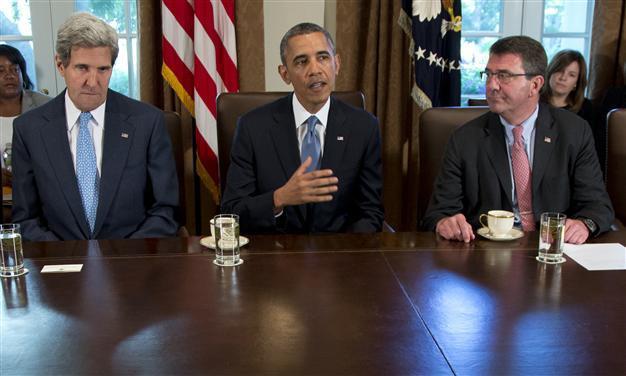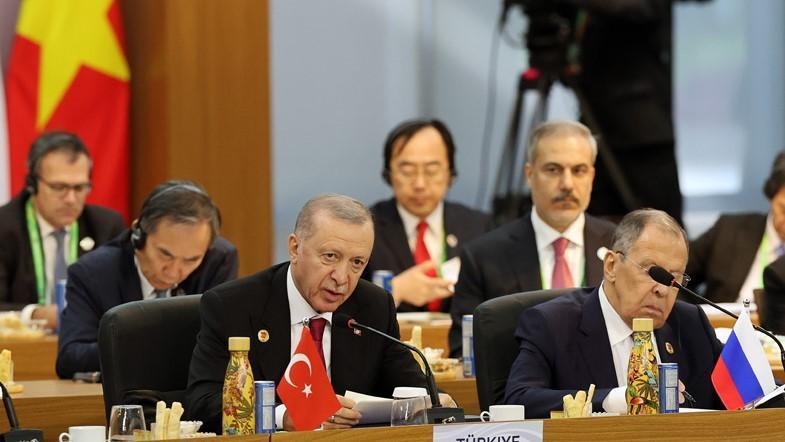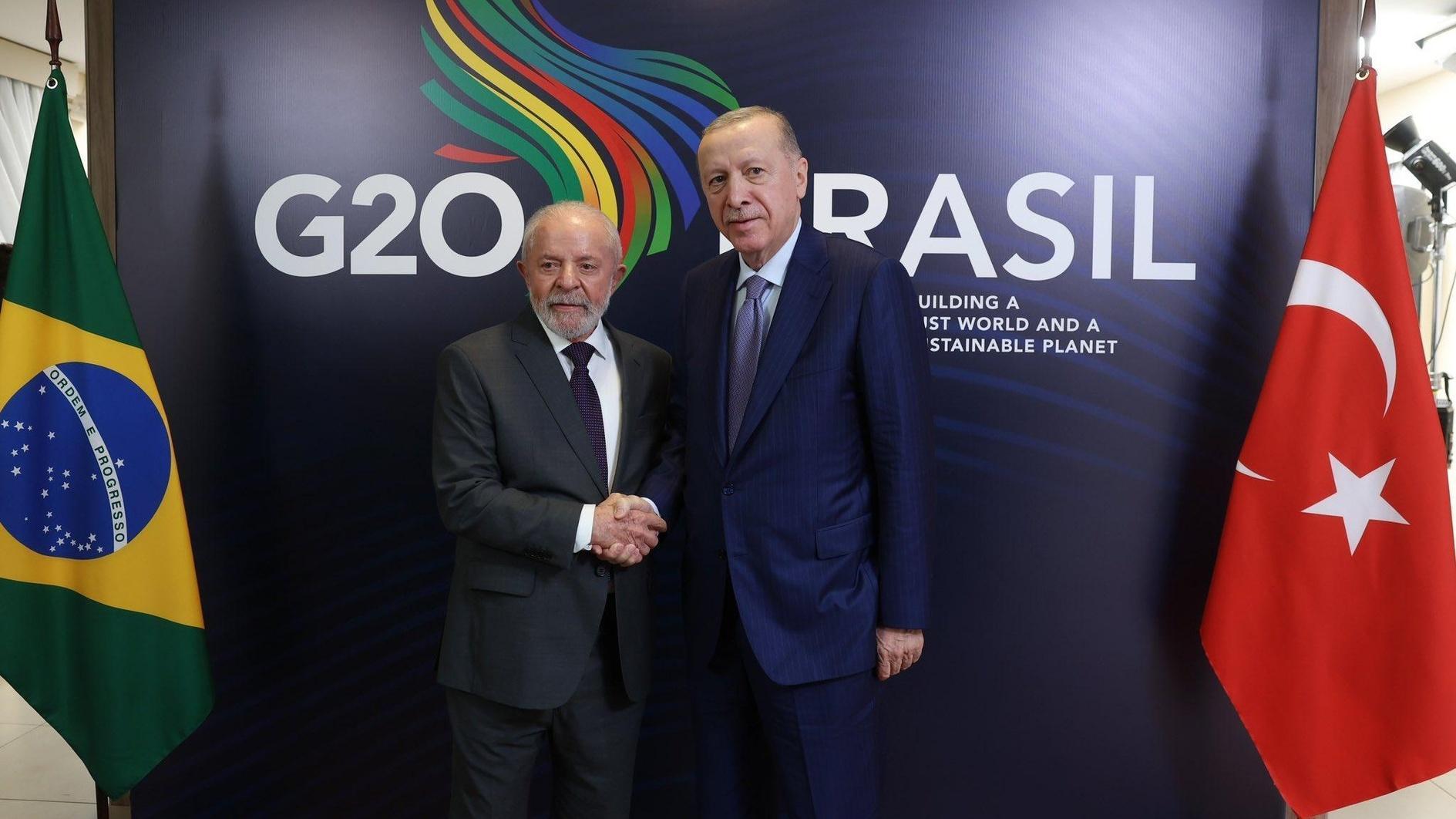Obama settles on Ashton Carter as Pentagon chief, sources say
WASHINGTON - Reuters

In this Sept. 30, 2013 file photo, then-Deputy Defense Secretary Ashton Carter, right, listens a President Barack Obama speaks to members of the media in the Cabinet Room of the White House in Washington. AP Photo
Administration sources said on Dec. 2 that U.S. President Barack Obama has settled on the 60-year-old Ashton Carter as his fourth defense secretary, with an announcement expected in coming days once he is thoroughly vetted.Carter would replace former Republican Senator Chuck Hagel who, like his predecessors Robert Gates and Leon Panetta, complained about White House micromanaging of the Pentagon and felt he had a lack of influence over decision-making, according to sources familiar with Hagel's tenure.
The next defense chief will join a national security team facing crises on multiple fronts - from the U.S.-led fight against Islamic State in Iraq and Syria to Russia's aggression in Ukraine, global efforts to contain Iran's influence and an increasingly assertive China.
Carter, a theoretical physicist with no uniformed military experience, has toiled away in high-ranking positions within the Pentagon in recent years, largely outside the glare of the media. His roles include deputy defense secretary - the Pentagon's No. 2 job - from 2011 to 2013 and a stint as an assistant secretary of defense for 1990s Democratic President Bill Clinton.
He was also the Pentagon's chief weapons buyer from 2009-11 when he led a major restructuring of the F-35 fighter jet program.
Given Obama's adamant convictions about limiting American military involvement abroad after costly wars in Iraq and Afghanistan, Carter will be an important conduit between the White House and generals at the Pentagon.
"The meetings may run better, the process may run better, but the fundamental challenges to the policy remain the same no matter who sits at the top of the Pentagon," said Aaron David Miller, a Middle East expert at the Woodrow Wilson International Center for Scholars.
'Natural tension'
White House spokesman Josh Earnest, asked about criticism that the White House micromanages the Pentagon, said there was "always some natural tension" between the White House and the Defense Department.
"The president is, after all, the commander-in-chief. So he obviously has significant say over what kinds of things are happening over at the Department of Defense," Earnest said.
The White House had no comment on Carter's selection.
But spokesman Earnest had glowing praise for a man little known outside Washington, but who has a reputation inside the capital as a career technocrat and sharp intellect who is unlikely to shake up U.S. military strategy.
Carter performed "very, very ably" in his prior Pentagon appointment, Earnest said at his daily briefing, noting that the Senate had confirmed him unanimously. Previous Senate confirmation is a valuable asset for a nominee seeking to clear partisan gridlock on Capitol Hill.
Oklahoma Republican James Inhofe, the top Republican on the Senate Armed Services Committee, said he thought Carter would gain Senate confirmation easily.
"He's got the experience, the background. He's not politically driven. I just think he'd be a good secretary," Inhofe told reporters.
Hagel resigned under pressure last week after less than two years at the helm of the Defense Department.
Whoever replaces him will be Obama's fourth defense secretary.
Hagel had privately expressed frustration with his inability to influence major questions of U.S. security strategy, including the fight against Islamic State in Iraq and the Levant (ISIL). His relationship with Obama's inner circle at the White House was strained.
















